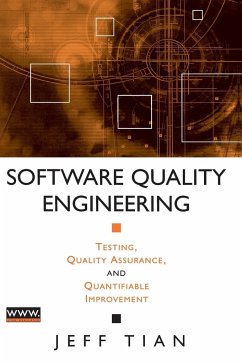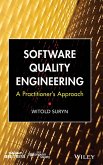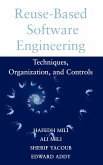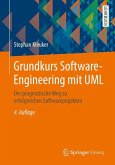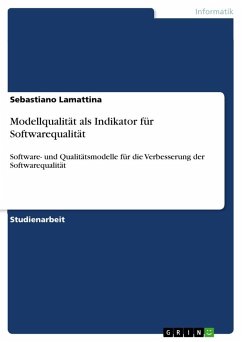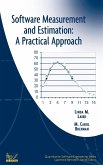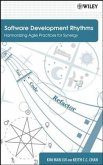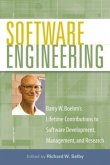This book tells you how to meet people's expectations with quality planning, software quality, automation, execution, validation, verification, measurement and analysis, and support. It is divided into four major parts: Part I introduces all the major topics and covers quality planning. Part II is devoted to software testing topics. Part III covers quality assurance alternatives and techniques (incl: inspection and formal verification). Part IV covers other major topics, including measurement and feedback, quality assessment and improvement. The linkage and integration of these diverse topics is an important feature: The author compares testing to other quality assurance alternatives and related techniques.
The one resource needed to create reliable software
This text offers a comprehensive and integrated approach to software quality engineering. By following the author's clear guidance, readers learn how to master the techniques to produce high-quality, reliable software, regardless of the software system's level of complexity.
The first part of the publication introduces major topics in software quality engineering and presents quality planning as an integral part of the process. Providing readers with a solid foundation in key concepts and practices, the book moves on to offer in-depth coverage of software testing as a primary means to ensure software quality; alternatives for quality assurance, including defect prevention, process improvement, inspection, formal verification, fault tolerance, safety assurance, and damage control; and measurement and analysis to close the feedback loop for quality assessment and quantifiable improvement.
The text's approach and style evolved from the author's hands-on experience in the classroom. All the pedagogical tools needed to facilitate quick learning are provided:
_ Figures and tables that clarify concepts and provide quick topic summaries
_ Examples that illustrate how theory is applied in real-world situations
_ Comprehensive bibliography that leads to in-depth discussion of specialized topics
_ Problem sets at the end of each chapter that test readers' knowledge
This is a superior textbook for software engineering, computer science, information systems, and electrical engineering students, and a dependable reference for software and computer professionals and engineers.
Hinweis: Dieser Artikel kann nur an eine deutsche Lieferadresse ausgeliefert werden.
The one resource needed to create reliable software
This text offers a comprehensive and integrated approach to software quality engineering. By following the author's clear guidance, readers learn how to master the techniques to produce high-quality, reliable software, regardless of the software system's level of complexity.
The first part of the publication introduces major topics in software quality engineering and presents quality planning as an integral part of the process. Providing readers with a solid foundation in key concepts and practices, the book moves on to offer in-depth coverage of software testing as a primary means to ensure software quality; alternatives for quality assurance, including defect prevention, process improvement, inspection, formal verification, fault tolerance, safety assurance, and damage control; and measurement and analysis to close the feedback loop for quality assessment and quantifiable improvement.
The text's approach and style evolved from the author's hands-on experience in the classroom. All the pedagogical tools needed to facilitate quick learning are provided:
_ Figures and tables that clarify concepts and provide quick topic summaries
_ Examples that illustrate how theory is applied in real-world situations
_ Comprehensive bibliography that leads to in-depth discussion of specialized topics
_ Problem sets at the end of each chapter that test readers' knowledge
This is a superior textbook for software engineering, computer science, information systems, and electrical engineering students, and a dependable reference for software and computer professionals and engineers.
Hinweis: Dieser Artikel kann nur an eine deutsche Lieferadresse ausgeliefert werden.

